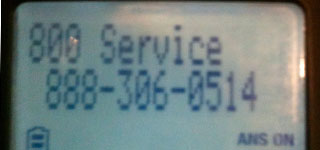
Coronavirus Spawns Class-Action Lawsuits as Consumers Seek Refunds
The pandemic has also triggered lawsuits over privacy issues with some video conferencing apps, and more.
Telemarketers have picked up on the fact that many of us now use caller ID to screen calls. According to the law, telemarketers must display accurate information, but some scam artists have found a way to break the rules.
Telemarketers have picked up on the fact that many of us now use caller ID to avoid their calls. According to the law, telemarketers must display accurate information when they call you, but some scam artists have found a way to break the rules. In “Caller ID Spoofing,” the caller’s information is disguised – often with generic titles, such as “Customer Service,” or sometimes with fake numbers and false information, such as the name of your bank or credit card company. This is in clear violation of the Truth in Caller ID Act of 2009, which makes it a crime to
knowingly transmit misleading or inaccurate caller identification information with the intent to defraud, cause harm, or wrongfully obtain anything of value.
Victims of caller ID spoofing not only are subject to unwanted telemarketing calls, they might also end up as targets of identity theft. What can you do? Be wary of divulging any Data that can be used to identify you, like your name, address, birth date, or Social Security number when responding to an incoming call. Even if it appears to be a trusted party such as your bank, you’re better off hanging up and dialing the number that you have in your records for them.
Read TINA.org’s tips on stopping telemarketing calls here.
The pandemic has also triggered lawsuits over privacy issues with some video conferencing apps, and more.
Why the FTC should consider virtual influencers as it reviews its Endorsement Guides.
Odds are you being good at trivia is not enough if you want to pay off your student loan debt with this app.


